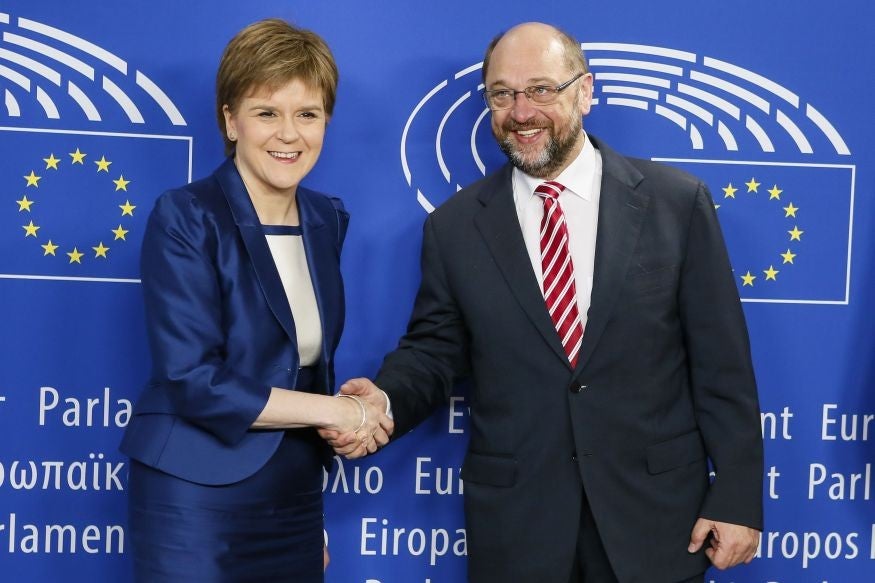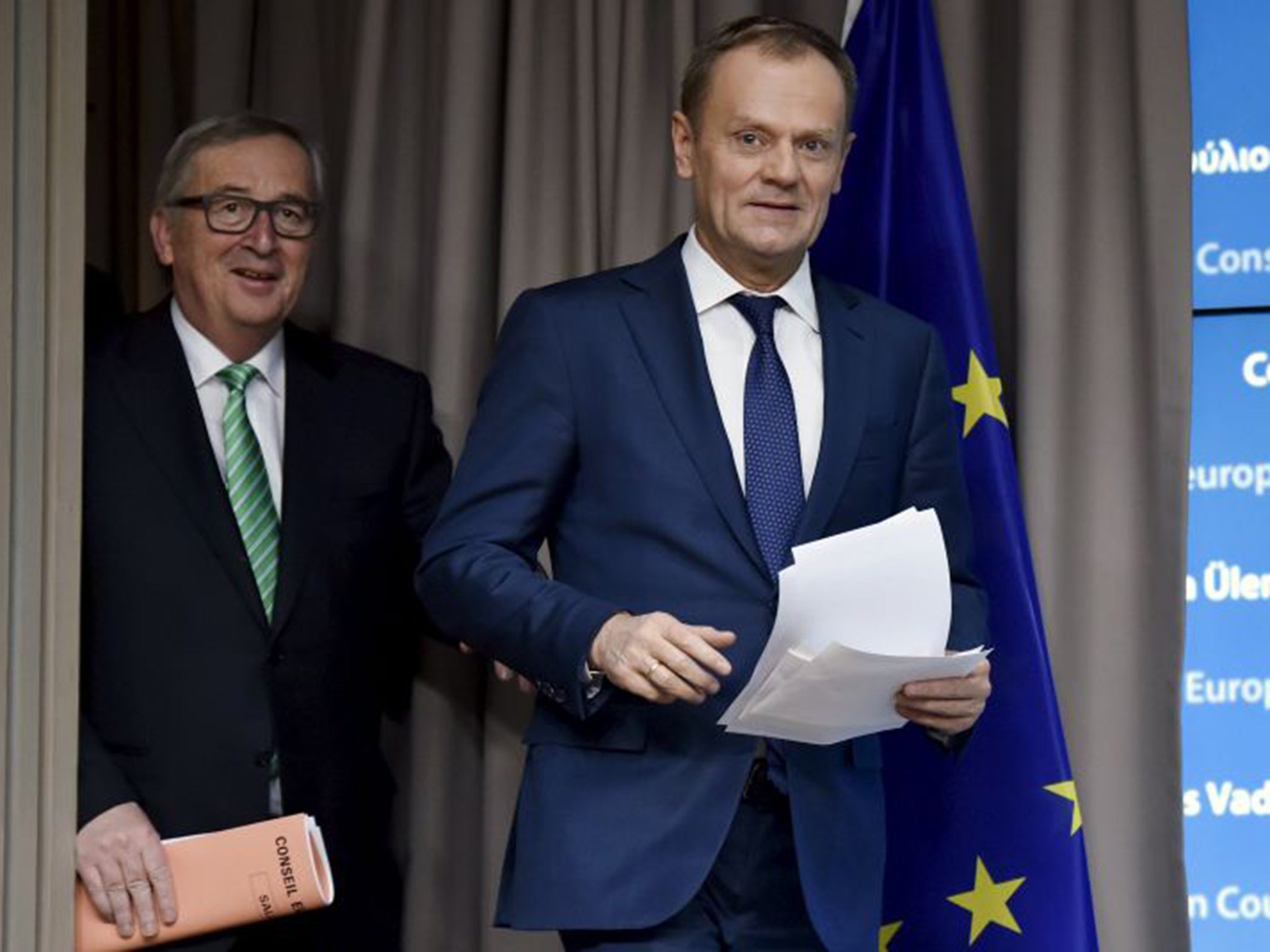European Commission president to 'listen' to Scotland's case to remain in EU
Jean-Claude Juncker will meet with Nicola Sturgeon to discuss the possibility of Denmark-style model for Scotland's continued membership

Your support helps us to tell the story
From reproductive rights to climate change to Big Tech, The Independent is on the ground when the story is developing. Whether it's investigating the financials of Elon Musk's pro-Trump PAC or producing our latest documentary, 'The A Word', which shines a light on the American women fighting for reproductive rights, we know how important it is to parse out the facts from the messaging.
At such a critical moment in US history, we need reporters on the ground. Your donation allows us to keep sending journalists to speak to both sides of the story.
The Independent is trusted by Americans across the entire political spectrum. And unlike many other quality news outlets, we choose not to lock Americans out of our reporting and analysis with paywalls. We believe quality journalism should be available to everyone, paid for by those who can afford it.
Your support makes all the difference.Jean-Claude Juncker, the President of European Commission, has agreed to "listen" to the case for Scotland to be allowed to remain in the European Union despite the Brexit referendum vote.
Nicola Sturgeon has said she faces a “challenge” to keep Scotland in the EU as European Council president Donald Tusk has said it would not be "appropriate" to discuss the country's future at this time.
The Scottish First Minister met with European Commission President Jean-Claude Juncker on Wednesday evening after meeting with the president of the European Parliament, Martin Schulz.
Mr Juncker held talks with Ms Sturgeon about her idea for Scotland to remain, a plan based on current arrangements for Denmark.
Continental Denmark is in the EU, but the country also includes the Faroe Islands and Greenland, which are not.
Ms Sturgeon has vowed to keep Scotland, which voted Remain during the referendum last week, in the European Union and has called for a second referendum on Scottish independence.
Speaking to reporters following her meeting with Mr Schulz, she said they were “at an early stage of this process”.

She said: “I have set out Scotland’s desire to protect our relationship with the European Union, I don’t underestimate the challenges that lie ahead for us in seeking to find a path.
“This is very much an initial meeting and a series of meetings in Brussels today”.
She said she wanted to make clear “that Scotland, unlike other parts of the United Kingdom, doesn’t want to leave the European Union”.
Meanwhile, Spain's Prime Minister Mariano Rajoy has said he would oppose any EU talks with Scotland.
He said: "I want to be very clear. Scotland does not have the competence to negotiate with the European Union. Spain opposes any negotiation by anyone other than the government of the United Kingdom.
"I am extremely against it, the treaties are extremely against it and I everyone is against it. If the United Kingdom leaves....Scotland leaves".
Individual EU countries have the right to veto the membership of any new country - so Spain could block the entry of an independent Scotland.
Catalonia and the Basque country in northern Spain have separatist movements which Madrid is keen to suppress.
As a result, Spain has moved to block recognition of any other regions in Europe which have attempted to break away from their countries - most notable it did not recognise Kosovo as an independent state when it broke from Serbia in 2008.
Scotland and Northern Ireland voted to remain in the UK but England and Wales, which have a larger combined population, voted to leave.
Outgoing Prime Minister David Cameron has said the "last thing Scotland needs" is a second referendum at this current time and urged the 48 per cent of people who voted to remain to respect the vote.
Speaking to reporters ahead of last night's EU summit in Brussels, he said he there was "universal respect" for the British decision among the other 27 leaders.
Join our commenting forum
Join thought-provoking conversations, follow other Independent readers and see their replies
Comments